Review of the Day: The Lost Year by Katherine Marsh
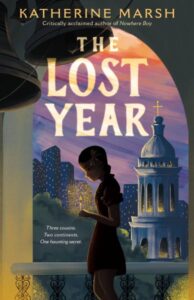
The Lost Year
By Katherine Marsh
Roaring Brook (an imprint of Macmillan)
$17.99
ISBN: 9781250313607
Ages 9-12
On shelves now
By and large, it sucks to live through history. For every Apollo moon landing you get ten Challengers. For every March on Washington you get reasons for why that march had to happen in the first place. Our kids know this. Heck, our kids probably know this better, as a group, than most kids throughout history. After all, only a few of the youngest of them will have already forgotten the experience of living through lockdown. It was such a bonding moment for them. For the rest of their lives they’ll know that almost every person around their age that they meet lived through some kind of variation on the same experience. When the early pandemic lockdown first happened in 2020, children’s authors leapt at the chance to include it in their middle grade novels. As a result you’d get books like Joseph Bruchac’s Rez Dogs, which came out while many children were still learning virtually, or Kelly Yang’s New From Here, which came out just after. Now a little more than three years has passed, as I write this, since March of 2020. Still, we’ll be seeing the pandemic in our literature for some time to come. The trick is in how authors use it, and few have been so deft as Katherine Marsh in her thoroughly stunning The Lost Year. If you think the 2020 COVID-19 lockdown, the famine in Ukraine in the 1930s, and Brooklyn at that same time makes for an awkward tri-narrative, you are wrong. And if you also think that it would be highly difficult to weave three such perspectives together, there you are correct, but it can be done. The Lost Year proves as much.
It hasn’t been a good day. Matthew’s Ninetendo Switch was confiscated by his mom JUST as he was finally going to defeat the big bad in Zelda. It’s early 2020 and the world has shut down. Matthew’s stuck in his home with his mom and great-grandma, whom he just calls GG. Meanwhile his dad is stuck overseas in Europe where he’s reporting on COVID-19 from afar. When Matthew’s mom assigns him the task of helping GG go through her old boxes, his boredom is quickly quelled by fascination. GG starts to tell two stories: One of a girl named Helen living in Brooklyn the 30s, and one of her cousin in Ukraine. But just to make the story confusing, there were actually two cousins in the Ukraine. Only one of them got out alive. The more Matthew learns, the more he realizes that he’s unspooling a family mystery that has been hidden in the family for decades… until now.
ADVERTISEMENT
ADVERTISEMENT
Kids today. Man. They are so lucky. Thanks to the middle grade novels they read, they’re going to be a universally informed generation in terms of history. My generation got our history from School House Rock. So, by the time I graduated high school I could tell you the rudimentary basics of WWII, but would demure if you asked about its predecessor. And the Ukraine? I knew so very little. Yet what separates a fine novel for kids from a truly great novel isn’t the simple fact that it’s set in the past and brings up facts that teachers, parents, and librarians might not know. We’ve plenty of rote books out there to make that clear enough. No, there needs to be something that ties the past into the present in some way. I don’t mean that you need a contemporary character. You need a universal truth to be present in your history that resonates with the current reader. In the case of The Lost Year, I was surprised to discover how much of this book is about news reporting. There’s the reporting tips that Matthew is getting from his father in order to interview his great-grandmother. Back in the 30s there’s the inaccurate reporting coming from Moscow correspondent Walter Duranty saying that there is no famine. There’s the reporting that Helen wants to do in order to tell the true story of what’s happening overseas, only to find her eyewitness has clammed up. And if by reading this book kids can start to get a sense of what propaganda is and how it can be wielded, the price will be worth it right there.
Just from a technical standpoint, I went through this book to figure out when exactly Marsh first starts to introduce characters beyond our contemporary hero, Matthew. Matthew starts learning of the girls’ stories, but if the author had waited too long to introduce them, it would mean front ending the book with a lot of comparatively dull lockdown text. So around chapter four she brings us a Helen chapter. It’s neat and you get the sense that it may have some tie to an old photo Matthew dug up in GG’s room. Now if Marsh had just plunged forward with that storyline without further explanation she could have disengaged her readers, so she intersperses this Helen stuff with Matthew again. This continues until a moment when GG says that she has “A terrible secret. Changed my life.” And then next thing you know we meet Mila. Adept.
As a child I eschewed misery as a general rule. If I got even a whiff of a sense that a book wasn’t going to be pure sweetness and light, I was outta there. Pretty limiting, I know. As an adult reader, some of that remains in me, so I’m very attuned to how an author keeps a book from devolving into a misery stew. When you’re writing for the 9-12 year old crowd, how much is too much? What are you allowed to tell? Where do you draw the line sometimes? In Marsh’s case, the only other books I’d read from her were fantasies. Here, she has to grapple with the horrors of a famine. To do so, she cleverly puts up some barriers between herself and the reader. The terrible things that happen in Nadia’s village are told to us after the fact. When bad things happen to our main characters, it’s a little more bearable because they have people (though not many) that do take care of them. And there’s a happy ending to the book but it’s a bittersweet happiness. Somehow, that makes you like it all the more.
Now how do you sell this to kids? I’m not saying it doesn’t grip you from the start. As the mother of a Zelda-loving kid, I have a special appreciation in my heart for the first sentences of this pretty sophisticated novel being, “Dark Beast Ganon charged. I aimed the Bow of Light at the monster’s glowing core and jumped. I shot off one arrow, then another.” But let’s face it. Some kids are going to hear the words “historical novel” and jump ship from the get go. Back in the day I did a lot of “booktalks” for kids. These are cases where you basically do a movie trailer, but as a monologue, for a book for a roomful of students. And what I love most about The Lost Year is also what’s going to sell it for them: It has a twist. Did I see the twist coming? Of course. Marsh plays fair with the reader and lays down lots of nice little clues. Still, even knowing what it was, I still felt that palpable shock when I discovered that I was right. Gotta credit the writing there.
Naturally, as a librarian my inclination is to pair this book with other titles. Interestingly, the first thing to come to mind was The Blackbird Girls by Anne Blankman. Again you have two girls, with two points of view, in an oppressive state, trying to make their way (only in this case they’ve escaped from Chernobyl). I was reminded too of The Genius Under the Table by Eugene Yelchin, where a boy growing up in Russia (a bit later in time than in this book) faces his deprivations with a ton of humor. Finally Cloud and Wallfish by Anne Nesbet came to mind as well. By gum, you could have yourself an incredible Cold War reading list if you truly wanted to.
I was explaining the plot of this book to my 9-year-old and the subject of Ukraine today came up and what they’re going through. When he heard that civilians were getting injured he asked, “Why doesn’t everyone just leave?” I tried to explain that it can be very difficult to leave a country and that America doesn’t take all that many refugees. He was utterly shocked. “But America’s the one country the in the world that takes everyone!” That hurt to correct, but it occurs to me that we might not have brought it up at all if I wasn’t explaining to him how hard it was for people to even leave the Ukraine in the 30s. Can you imagine all the conversations that this book will spark? That it has already sparked? So many comparisons to today. So many ways in which the problems then can mirror our problems today. Those who don’t know their history are doomed to repeat it. And those that don’t read their children’s historical fiction are missing out on more than they’ll ever know. A grand work of recent and distant history.
On shelves now.
Source: Galley sent from publisher for review.
Filed under: Best Books, Best Books of 2023, Reviews, Reviews 2023
About Betsy Bird
Betsy Bird is currently the Collection Development Manager of the Evanston Public Library system and a former Materials Specialist for New York Public Library. She has served on Newbery, written for Horn Book, and has done other lovely little things that she'd love to tell you about but that she's sure you'd find more interesting to hear of in person. Her opinions are her own and do not reflect those of EPL, SLJ, or any of the other acronyms you might be able to name. Follow her on Twitter: @fuseeight.
ADVERTISEMENT
ADVERTISEMENT
SLJ Blog Network
Name That LEGO Book Cover! (#53)
Exclusive: Vol. 2 of The Weirn Books Is Coming in October | News
Fighting Public School Book Bans with the Civil Rights Act
North Texas Teen Book Festival 2024 Recap
ADVERTISEMENT



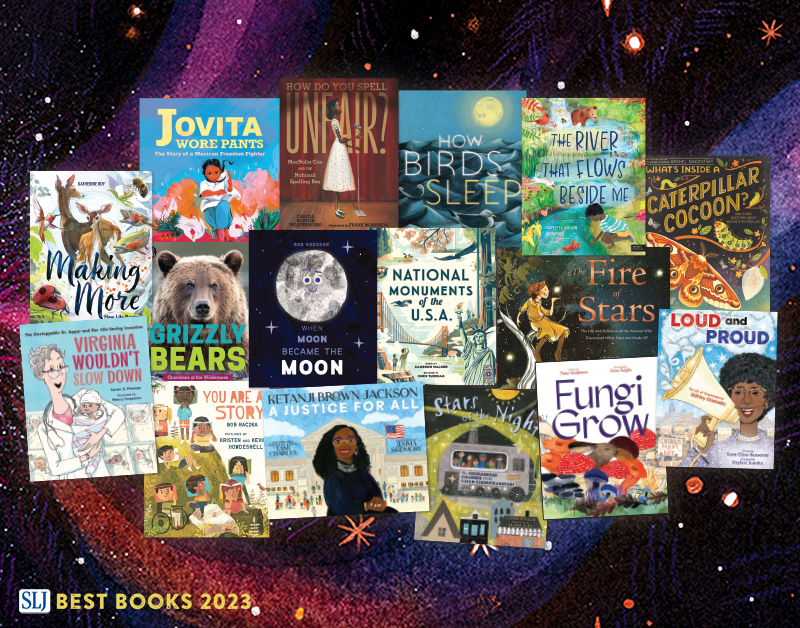
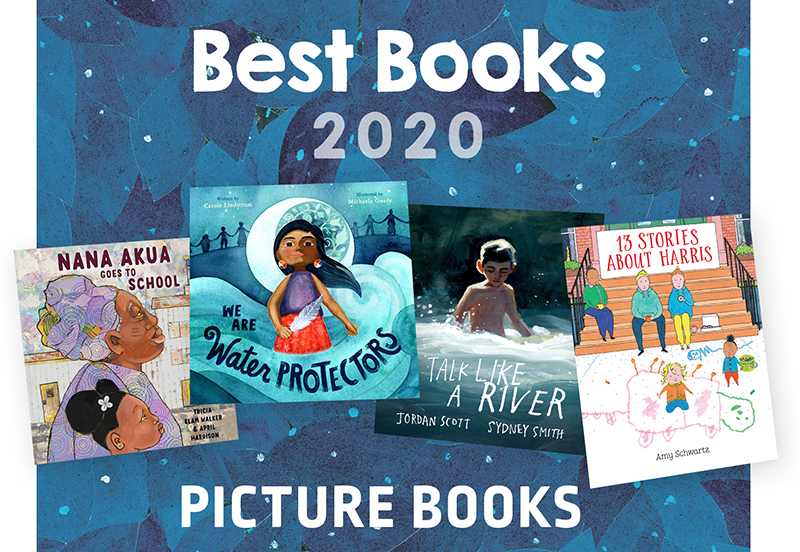
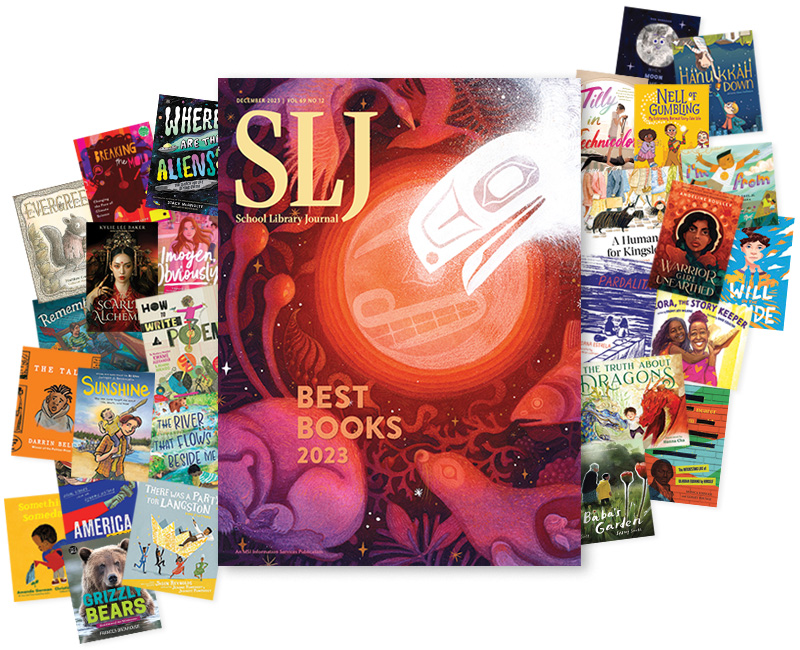
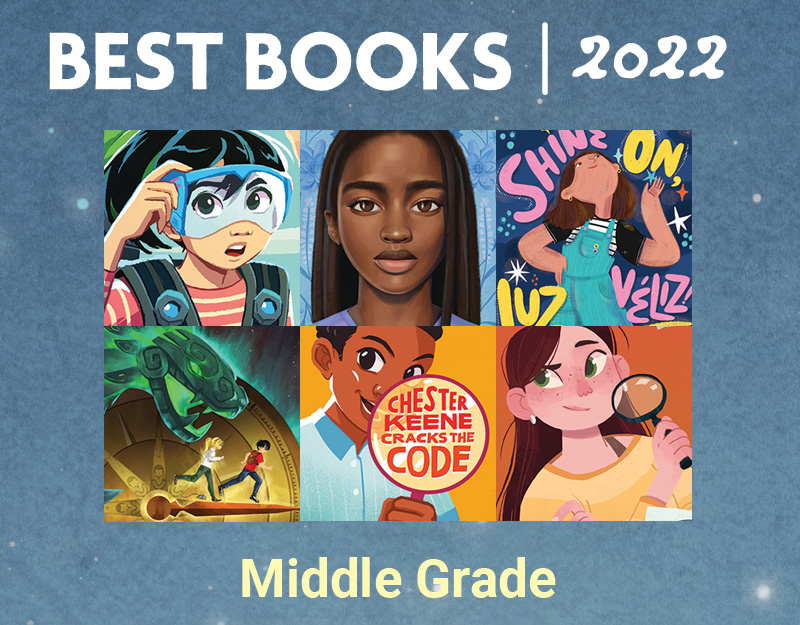
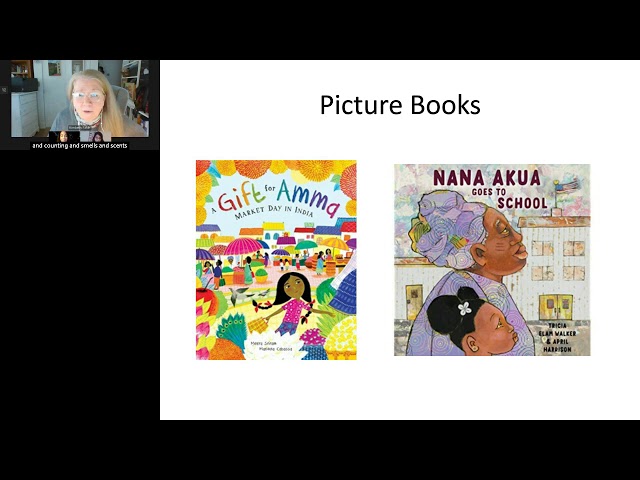
I live in such an isolated old-lady bubble. I have never heard of “Zelda”. I read your reviews and am so attracted by what you say I quite often go directly from the daily post straight to Amazon to order a copy of the book of the day. I am rarely disappointed and also have grateful public libraries willing to take leftovers!
Today I’m attracted by an elder called G.G. sharing personal stories with a young relative while going through boxes containing the artifacts and memories of years gone by. These are my current experiences.
Betsy, you say “Kids today. Man. They are so lucky.” I could take issue with that statement. Yes, the literature being published today designed just for them has never been better. BUT TOO MANY KIDS WILL NEVER BE INTRODUCED TO THESE TREASURES because we have BOOK BANS AND INFLUENCIAL ADULTS initiating and supporting those bans. But, currently, we also see resistance to the banning gathering speed. Which side will win? That great mystery is what makes me willing to get up each morning to live another 2023 day in America. So IMO, kids today are NOT (yet) lucky. Kids today are growing up in times no one my age could have ever imagined. However, they have arrived on their stage of “history”. Remember the saying, “it isn’t over until the fat lady sings”? (pardon this non-politically-correct mention of a FAT lady). The history of our youngsters remains a MYSTERY. God willing, the world will still be running when they are writing reviews of the newest and greatest. Hope for a better future helps me deal.
Another title for your Cold War reading list is I Must Betray You by Ruta Sepetys.
Ah, but that’s YA. And there lie my limits.